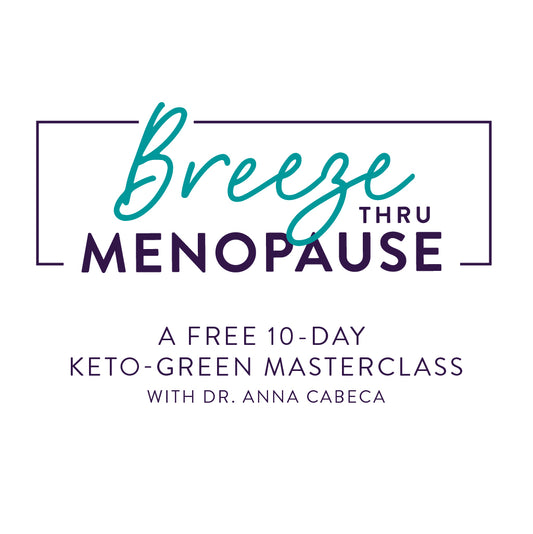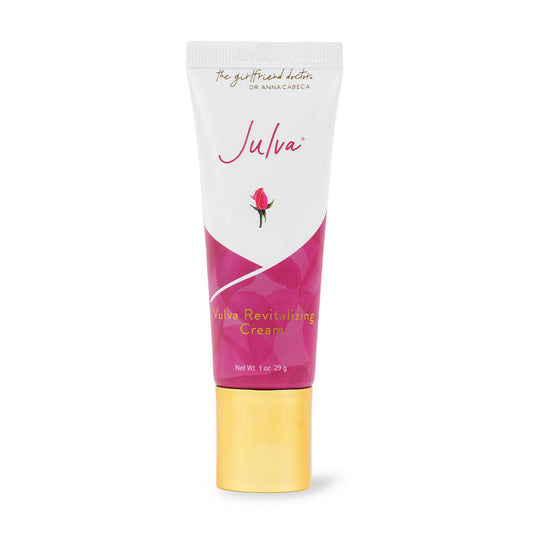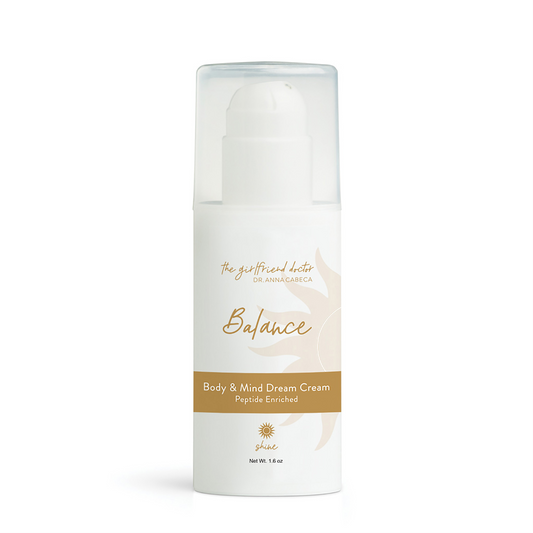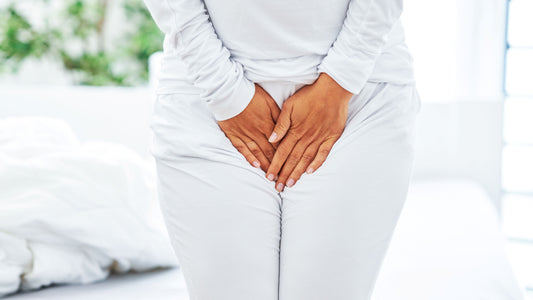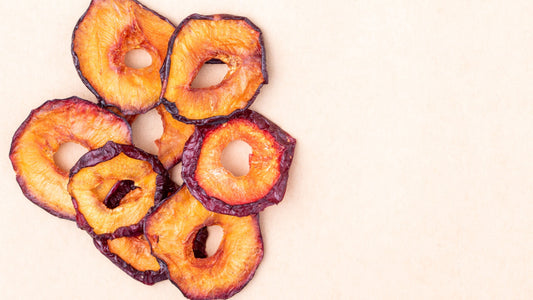When pain replaces pleasure, it can feel isolating, confusing, and even shameful. You want to connect with your partner. You want to enjoy sex. But you can’t make your body cooperate. So let’s talk about the big question: why does sex hurt after menopause?
And, more importantly, is there any way to make things more comfortable so you can go back to loving your sex life?
Let’s reclaim your body and your right to pleasure, together.
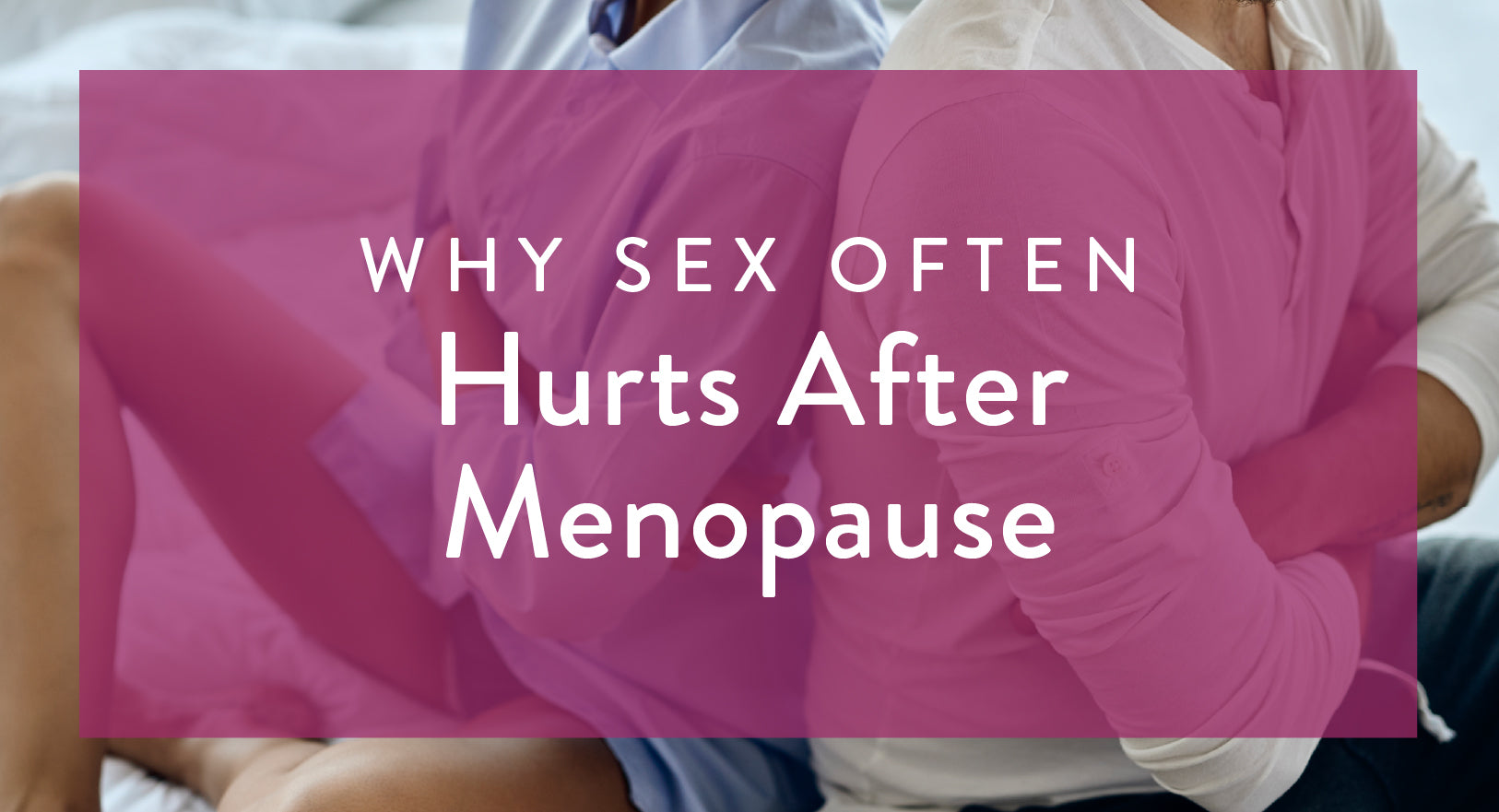
Maybe you’ve heard me explain this before, but it bears repeating: Your vaginal tissues need estrogen to feel plump, juicy, and lubricated. So, when estrogen levels drop in menopause…it typically has an outsized impact on your vaginal and vulvar tissues.
The result?
Vaginal atrophy.
That’s the medical term for “my vagina feels dry and painful and even the wrong pair of jeans can make me feel horrible down there.”
Vaginal atrophy means the tissues that once felt soft, plump, and responsive now feel dry, tight, and fragile. Even gentle penetration can cause burning, itching, tearing, or soreness afterward. And without enough blood flow or moisture, arousal itself becomes more difficult to achieve.
This isn’t about lack of desire or attraction — it’s a biological reality affecting nearly 50% of postmenopausal women, yet it remains hidden behind closed doors. The good news? You can take real steps to maintain your love life. Keep reading, and I’ll walk you through them.
The Emotional Impact of Painful Sex
If you’re wondering why sex hurts after menopause, and you’re watching your relationship fall apart as a result…please know you’re not alone.
When sex becomes painful, it affects more than just the body — it touches every part of your emotional and relational life. It makes you defeated and frustrated…because something that once brought you joy has become something you’re actively avoiding.
The silence around how to deal with painful sex during menopause often makes things worse.
Because let’s be honest: partners often misinterpret withdrawal as rejection. And even in the best relationships, this shift can create confusion and distance.
For a little help facilitating a discussion, be sure to check out my menopause tips for husbands.

Your vaginal and vulvar tissues thrive on attention. Once estrogen starts to wane and blood flow decreases to the area, it creates a “use it or lose it” situation down there.
Maybe you’ve already noticed your labia shrinking or found that orgasm is much harder to achieve these days.
Or the opening of your vagina seems to be getting smaller. Maybe you’ve felt your natural lubrication declining. All of this can leave you feeling disconnected or uncomfortable in your own body — but you don’t have to stay there.
The solution is not to just give up and wait for things to get worse.
Daily care and attention are critical at this stage.
Just like you’d never skip your nightly face moisturizer or serums, you’ve got to actively support the health of your vaginal tissues right now.
A high-quality vulvar moisturizer used regularly can help support moisture and comfort — even before sex even enters your mind. I like to think of it as “skincare for your intimate skin.”
And unlike lubricants used only during intimacy, moisturizers work behind the scenes to support your body’s natural balance.
For the ultimate in midlife moisture, be sure to check out my signature, patent-pending Julva® cream here.
It’s important to note: daily moisturizing isn’t about masking dryness, it’s about helping your tissues feel “loved” and cared for, so they’re ready when you are.

Look, I know that most of us didn’t grow up in a very sexually empowered environment. A lot of us were taught that sex was a male-centric activity, and our job was to be there so he could enjoy pleasure.
But the reality is this: if your partner isn’t “preheating the oven” and helping you become aroused with foreplay…it can make sex that much more painful.
I know it can be uncomfortable, but it’s time to take control of your sexual pleasure and explain what you need and want in the bedroom. If you are literally in pain during intimacy, you deserve better, Girlfriend.
For more help in this department, I actually have an entire self-study course that walks you through my proven steps for reigniting your passion for each other. Check out Sexual CPR here.
Prescription Hormones For Vaginal Atrophy
Have you approached your doctor looking for relief and hoping for hormone therapy, only to be sent away empty-handed?
Many women who finally seek help for vaginal pain are met with a frustrating roadblock: getting access to topical hormone treatments.
Despite decades of research confirming the safety and effectiveness of vaginal estrogen and DHEA therapies, some doctors hesitate to prescribe them. (1-3)
Fear of hormones, outdated cancer risk narratives, and a general lack of menopause education among providers leave countless women without the support they deserve.
This can feel especially disheartening when you’ve already had to work up the courage to speak up. But don’t give up. Keep advocating for yourself, and find a different provider if you need to.
Also, I do want to add this: just because for many women hormonal therapies are generally regarded as safe, it’s important to speak with your doctor about your specific situation.
Reclaiming Pleasure And The Benefits of Postmenopausal Sex
Painful sex can make it feel like intimacy is over — but it doesn’t have to be. With the right care and attention, sex after menopause can be deeply satisfying, both physically and emotionally.
There are real, research-backed benefits of sex after menopause.
Probably the most notable: The more you do it, the more your sexual function increases. (4) Remember when I said menopause creates a “use it or lose it” situation down there? This is exactly what I’m talking about.
Plus, it helps you stay connected to your body, your partner, and your sense of self.
Sex after menopause is about recognizing that your needs matter, and that your sexual well-being deserves just as much care as any other part of your health.
Whether you’re easing back into intimacy or starting fresh, the key is consistency: daily tissue support, open communication, and a willingness to listen to your body.
Products like Julva can help you feel more like yourself again — but ultimately, you are the one reclaiming joy on your terms, and that’s what really matters.



